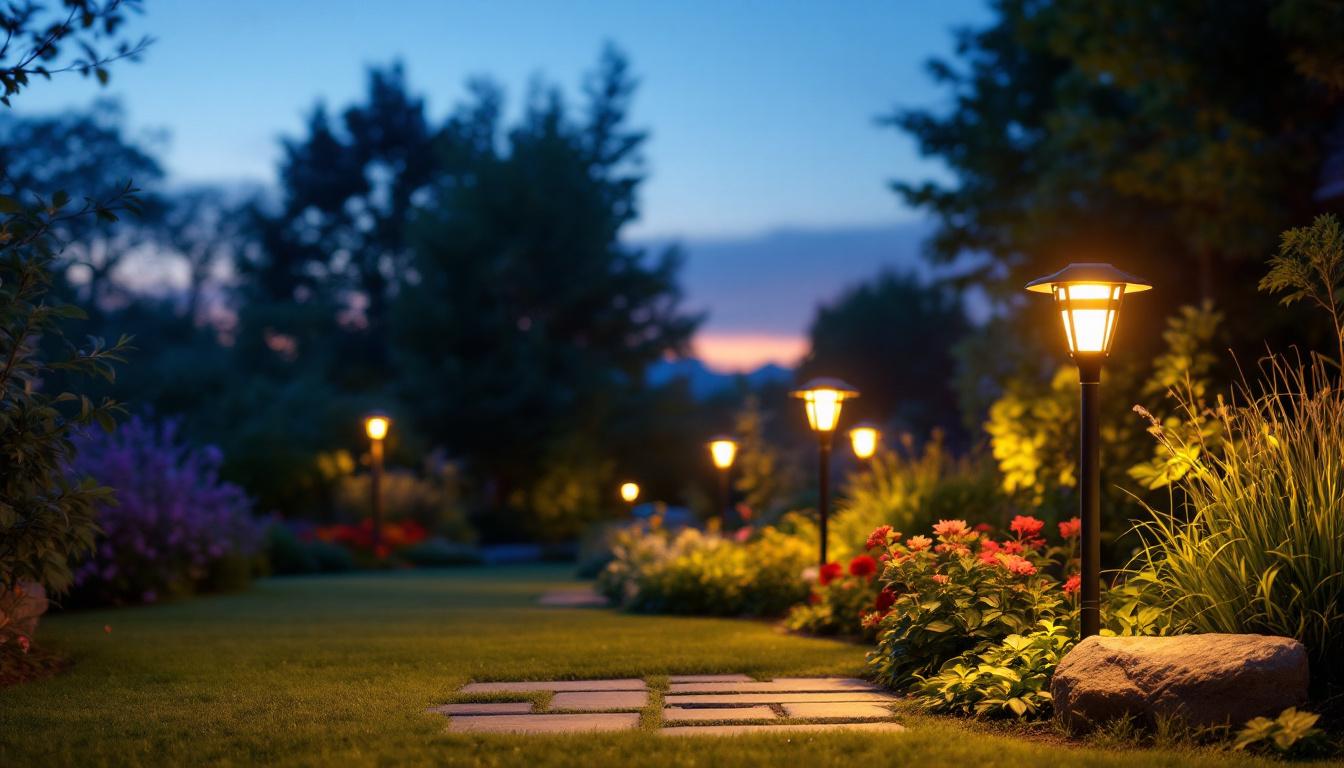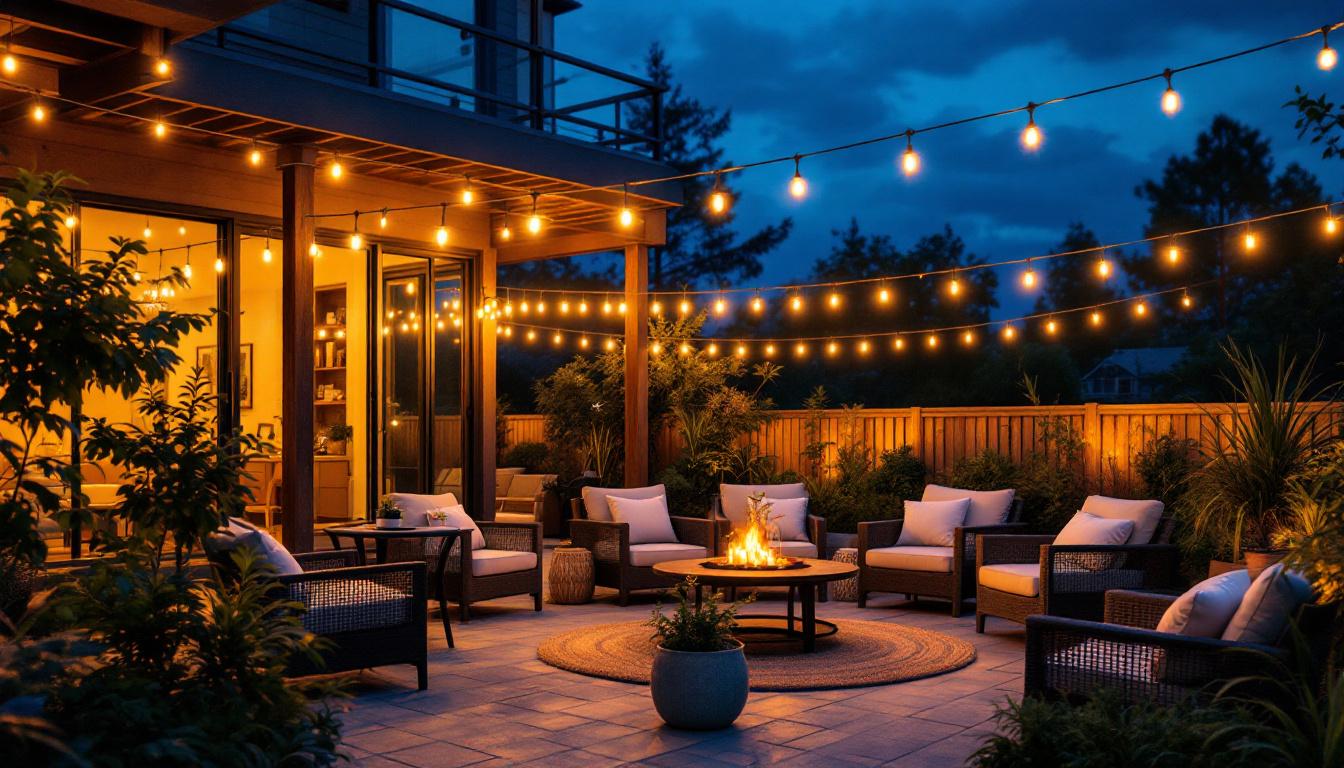
As the demand for sustainable energy solutions continues to rise, solar panel lights have emerged as a popular choice for garden lighting. These innovative fixtures not only enhance the aesthetic appeal of outdoor spaces but also contribute to environmental conservation by reducing reliance on traditional power sources. For lighting contractors, understanding the compliance requirements and technical specifications of solar panel lights is essential for successful installation and customer satisfaction.
This article aims to provide lighting contractors with a comprehensive overview of solar panel lights for gardens, focusing on compliance, installation best practices, and considerations for selecting the right products. By equipping themselves with this knowledge, contractors can better serve their clients and navigate the evolving landscape of outdoor lighting.
Solar panel lights come in a variety of styles and functionalities, catering to diverse garden designs and lighting needs. From pathway lights that guide visitors safely through the landscape to decorative lanterns that create a cozy ambiance, the options are plentiful. Many modern solar lights are equipped with motion sensors and adjustable brightness settings, allowing for enhanced security and energy efficiency. This versatility not only meets the practical demands of homeowners but also opens up new avenues for contractors to showcase their creativity and expertise in outdoor design.
Moreover, the technology behind solar panel lights has advanced significantly in recent years. With improvements in solar cell efficiency and battery storage capabilities, these lights can now provide reliable illumination even on cloudy days or during extended periods of low sunlight. This reliability is crucial for contractors when advising clients on the best products for their specific environments. Additionally, many manufacturers are prioritizing eco-friendly materials and sustainable production processes, further aligning solar panel lights with the values of environmentally conscious consumers. As such, contractors should stay informed about the latest innovations and trends in solar lighting to offer their clients the most effective and sustainable solutions available.
Compliance with local and national regulations is crucial for any lighting installation, especially when it involves solar technology. Contractors must familiarize themselves with the relevant standards that govern the use of solar panel lights in gardens.
The National Electrical Code (NEC) provides guidelines for electrical installations, including those involving solar energy systems. While solar panel lights generally operate at low voltage, contractors should ensure that all components meet NEC standards to minimize safety risks. This includes proper wiring practices, grounding, and circuit protection to prevent electrical hazards.
Moreover, contractors should stay updated on any amendments to the NEC that may affect solar installations. Regular training and certification in electrical codes can help contractors maintain compliance and enhance their credibility in the market.
In addition to national standards, local zoning and building codes may impose specific requirements for solar panel installations. These regulations can vary significantly from one municipality to another, so it is essential for contractors to research local guidelines before beginning a project.
Contractors should consider factors such as the placement of solar lights, height restrictions, and aesthetic guidelines that may influence the design and installation process. Engaging with local authorities early in the project can help avoid potential compliance issues and streamline the approval process.
When selecting solar panel lights for garden installations, contractors must pay close attention to technical specifications that can impact performance and longevity. Understanding these specifications can help ensure that the chosen products meet client expectations and function effectively in various outdoor conditions.
The efficiency of a solar panel directly affects the amount of energy it can generate. Contractors should look for solar lights equipped with high-efficiency panels that can convert a greater percentage of sunlight into usable energy. This is particularly important in regions with limited sunlight, as efficient panels can ensure reliable operation even in less-than-ideal conditions.
Contractors should also consider the size of the solar panel in relation to the light’s energy requirements. A larger panel may be necessary for lights that require more power, especially those with higher lumen outputs or additional features such as motion sensors.
The battery is a critical component of solar panel lights, as it stores the energy generated by the solar panel for use during nighttime. Contractors should pay attention to the battery capacity, measured in amp-hours (Ah), as this determines how long the lights can operate after sunset.
Additionally, the type of battery used can influence the performance and lifespan of the solar lights. Lithium-ion batteries, for example, offer higher energy density and longer life cycles compared to traditional lead-acid batteries. Contractors should educate clients about the benefits of different battery types to help them make informed decisions.
Proper installation is key to maximizing the performance and longevity of solar panel lights. Lighting contractors should follow best practices to ensure that the installation process is efficient and meets compliance standards.
Before installation, conducting a thorough site assessment is essential. Contractors should evaluate factors such as sunlight exposure, landscape features, and potential obstructions that could hinder solar panel performance. This assessment will inform the optimal placement of solar lights to ensure they receive adequate sunlight throughout the day.
Planning the layout of the solar lights is also crucial. Contractors should consider the desired lighting effect, the spacing between fixtures, and the overall design of the garden. A well-thought-out plan can enhance the aesthetic appeal of the space while ensuring functional lighting for safety and usability.
When installing solar panel lights, proper mounting techniques are vital for stability and performance. Contractors should ensure that the lights are securely anchored to withstand wind and weather conditions. This may involve using stakes, brackets, or concrete bases, depending on the type of fixture and the installation environment.
Additionally, contractors should be mindful of the angle and orientation of the solar panels. Positioning the panels to maximize exposure to sunlight can significantly improve energy generation and overall performance. Regular maintenance checks should also be scheduled to ensure that the panels remain clean and unobstructed.
With a plethora of solar panel lights available on the market, selecting the right products for garden installations can be a daunting task. Contractors should consider various factors to ensure they choose high-quality, reliable fixtures that meet client needs.
Investing in high-quality solar panel lights is essential for long-term performance and customer satisfaction. Contractors should look for products made from durable materials that can withstand outdoor elements, such as UV exposure, moisture, and temperature fluctuations. Stainless steel and high-grade plastics are often preferred for their resilience and longevity.
Additionally, checking for warranties and certifications can provide assurance of product quality. Reputable manufacturers often offer warranties that cover defects and performance issues, giving contractors and clients peace of mind.
The design of solar panel lights can significantly impact the overall look of a garden. Contractors should consider the architectural style of the property and the desired ambiance when selecting fixtures. Options range from modern and sleek designs to more traditional styles, allowing contractors to cater to diverse client preferences.
Moreover, color temperature and brightness levels should also be taken into account. Warm white lights can create a cozy atmosphere, while cool white lights may be better suited for contemporary settings. Understanding the client’s vision for their outdoor space can guide contractors in making the right choices.
Regular maintenance is essential for ensuring the longevity and performance of solar panel lights. Contractors should educate clients about simple maintenance tasks they can perform to keep their lights in optimal condition.
Solar panels should be kept clean and free of debris to maximize energy absorption. Contractors can recommend a cleaning schedule, typically every few months, depending on the local environment. This may involve gently wiping the panels with a soft cloth and checking for dirt, leaves, or snow that could obstruct sunlight.
Additionally, inspecting the fixtures for any signs of damage or wear can help identify potential issues before they escalate. Clients should be encouraged to report any irregularities, such as dimming lights or flickering, which may indicate a need for battery replacement or other repairs.
Even with proper maintenance, solar panel lights may encounter issues from time to time. Contractors should be prepared to troubleshoot common problems, such as lights not turning on or insufficient brightness.
In many cases, these issues can be traced back to battery problems or insufficient sunlight exposure. Contractors should guide clients through basic troubleshooting steps, such as checking battery connections, ensuring the solar panel is clean, and verifying that the lights are positioned correctly for optimal sun exposure.
As the popularity of solar panel lights continues to grow, lighting contractors must stay informed about compliance standards, technical specifications, and best practices for installation and maintenance. By understanding these key aspects, contractors can provide valuable services to their clients while contributing to the advancement of sustainable lighting solutions.
Investing time in education and staying updated on industry trends will empower contractors to make informed decisions and deliver high-quality installations. Ultimately, the successful integration of solar panel lights in gardens not only enhances outdoor spaces but also promotes a greener future for all.
Ready to elevate your garden lighting projects with the best in solar panel lights? Look no further than LumenWholesale, where we provide contractors with exceptional, spec-grade lighting products at unbeatable wholesale prices. Our commitment to quality and affordability ensures that you can offer your clients reliable, high-performance lighting solutions without the burden of inflated costs. Plus, with free shipping on bulk orders, you can stock up on premium lighting effortlessly and economically. Don’t miss out on the perfect blend of quality, affordability, and convenience. Discover the value of wholesale lighting by visiting LumenWholesale today.

Discover the benefits of LED patio lights solar in this contractor edition—learn how to enhance outdoor ambiance, save energy, and boost property value.

Discover the essential insights lighting contractors need to meet client expectations for outdoor building lights.

Discover innovative strategies and expert tips for smart lighting contractors with Envision LED Lighting.

Discover the ultimate guide to wall sconce light fixtures with our essential checklist tailored for lighting professionals.